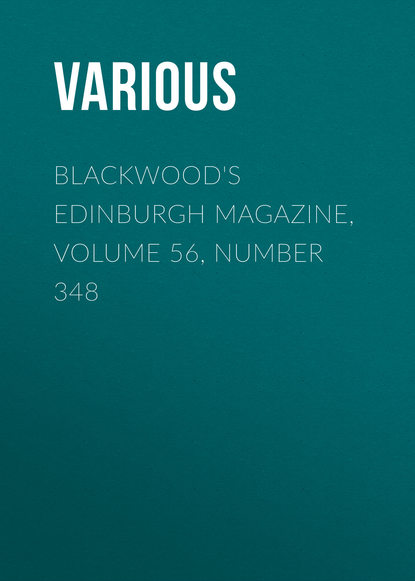По всем вопросам обращайтесь на: info@litportal.ru
(©) 2003-2024.
✖
Blackwood's Edinburgh Magazine, Volume 56, Number 348
Автор
Год написания книги
2019
Настройки чтения
Размер шрифта
Высота строк
Поля
Then far and wide, like lord and bride,
In the radiant light we shone—
It sank; and again the ruins
Stood desolate and lone!
We shall now select, from the songs that are scattered throughout the tale of Wilhelm Meister, one of the most genial and sweet. It is an in-door picture of evening, and of those odorous flowers of life which expand their petals only at the approach of Hesperus.
Philine’s Song
Sing not thus in notes of sadness
Of the loneliness of night;
No! ’tis made for social gladness,
Converse sweet, and love’s delight.
As to rugged man his wife is,
As his fairest half decreed,
So dear night the half of life is,
And the fairest half indeed.
Canst thou in the day have pleasure,
Which but breaks on rapture in,
Scares us from our dreams of leisure
With its glare and irksome din?
But when night is come, and glowing
Is the lamp’s attemper’d ray,
And from lip to lip are flowing
Love and mirth, in sparkling play;
When the fiery boy, that wildly
Rushes in his wayward mood,
Calms to rest, disporting mildly,
By some trivial gift subdued;
When the nightingale is trilling
Songs of love to lovers’ ears,
Which, to hearts with sorrow thrilling,
Seem but sighs and waken tears;
Then, with bosom lightly springing,
Dost thou listen to the bell,
That, with midnight’s number ringing,
Speaks of rest and joy so well?
Then, dear heart, this comfort borrow
From the long day’s lingering light—
Every day hath its own sorrow,
Gladness cometh with the night!
We are somewhat puzzled as to the title which we ought to prefix to our next specimen. Goethe rather maliciously calls it “Gegenwart,” which may be equivalent to the word “Presentiality,” if, indeed, such a word belongs to the English language. We, therefore, prefer dedicating it to our own ladye love; and we could not find for her any where a sweeter strain, unless we were to commit depredation upon the minor poems of Ben Jonson or of Shakspeare.
To my Mistress
All that’s lovely speaks of thee!
When the glorious sun appeareth,
’Tis thy harbinger to me:
Only thus he cheereth.
In the garden where thou go’st,
There art thou the rose of roses,
First of lilies, fragrant most
Of the fragrant posies.
When thou movest in the dance,
All the stars with thee are moving,
And around thee gleam and glance,
Never tired of loving.
Night!—and would the night were here!
Yet the moon would lose her duty,
Though her sheen be soft and clear,
Softer is thy beauty!
Fair, and kind, and gentle one!
Do not moon, and stars, and flowers
Pay that homage to their sun
That we pay to ours?
Sun of mine, that art so dear—
Sun, that art above all sorrow!
Shine, I pray thee, on me here
Till the eternal morrow.
Another little poem makes us think of “poor Ophelia.” We suspect that Goethe had the music of her broken ballad floating in his mind, when he composed the following verses:—
The Wild Rose
A boy espied, in morning light,
A little rosebud blowing.
’Twas so delicate and bright,
That he came to feast his sight,
And wonder at its growing.
Rosebud, rosebud, rosebud red,
Rosebud brightly blowing!
I will gather thee—he cried—
Rosebud brightly blowing!
Then I’ll sting thee, it replied,
And you’ll quickly start aside











